In the spirit of honesty, I am not a patient person. I am also incredibly independent and have an issue with claustrophobia. Thus, the baby phase is a tough one for me personally. It stands to reason, therefore, that I have limited to no patience for anyone who isn’t a baby acting like a baby.
As we were preparing for our second child, and all of the baby gear came out of the garage, my oldest was understandably curious. We explained to her how certain things worked and showed her what her role could be as a big sibling. But, inevitably, our oldest got it into her head that being a baby might be something she’d like to try again. And I can honestly say that the first time our oldest said, “I want to be a baby,” sirens went off in my head, and we nipped that in the bud.
If this behavior doesn’t bother you, then I applaud your patience (seriously), and don’t worry about your kid getting “stuck” in this phase. From everything I’ve heard from friends who aren’t as bothered by “baby talk” and carrying their older children, their kids have grown out of “wanting to be a baby” just fine without much additional encouragement! I just couldn’t take it, so here’s what we did:
In its most basic form, here was our mantra with our oldest (or any new “baby” of the family upon the expected or actual birth of a new baby):
Being a baby sucks : Being a big kid rocks
In fact, we drummed this into our family so deeply that when we told our oldest that we were going to be a family of five, she retorted, “I hope that baby grows up fast because being a baby is no fun.”
As I’ve mentioned before (here and here), we consistently reminded our oldest of what she was able to do that babies couldn’t do yet: fro-yo, stickers, roller coasters (when your new infant is really young, this is an even more basic list: eating, walking, staying awake, etc). Instead of doing all of those fun things, babies have to sleep all the time, can’t use their words, can’t walk, can’t eat regular food, etc. Basically, whatever your oldest wants to do probably can’t be done by a new infant, including making necklaces:
Interestingly enough, this turned into a fun game (for me). Whenever my daughter would say that she wanted to be treated like a baby, I would acquiesce willingly and suggest that I change her into a diaper (she was a defiant early potty trainer), put her into her bed for a nap (definitely not her preferred pastime), and feed her only milk (as opposed to whatever deliciously well-rounded meal I would audibly contemplate) or pureed peas (which I let her try once in her recent memory, and she knew she didn’t like). When she would start to argue with me, I’d cut her off and say, “I’m sorry, baby, but you don’t have any words yet, so I can’t understand you. If you’d like to be a big girl again, I would love to have a conversation with you.” This worked 100% of the time within 2 minutes or less.
This tactic may sound rather harsh, and I completely understand if it doesn’t fit your family dynamic. As I mentioned above, if it doesn’t bother you when your older child wants to pretend to be a baby, then please don’t worry! There’s nothing wrong with your child for asking or with you for acquiescing. Personally, I barely survived baby-hood with each of my babies and any suggestion of returning to those all-dependent habits strikes deeply at my core survival responses. This “game” is my coping mechanism for maintaining my composure while encouraging my older child(ren) to be excited about where they are in life rather than trying to emulate their younger siblings.
I would imagine that allowing children the opportunity to play-act being a baby again would help them to see how much better being a “big kid” really is in comparison. Ultimately, this “game” was a shorthand to bypass the fun parts of the experimentation (being held/carried all the time, being swaddled to sleep, drinking from a bottle, seemingly more focused attention, etc) and moving right to the sucky bits of babyhood (no communication beyond crying, no “real” food, no independence or autonomy, soiled diapers, copious sleep, etc).
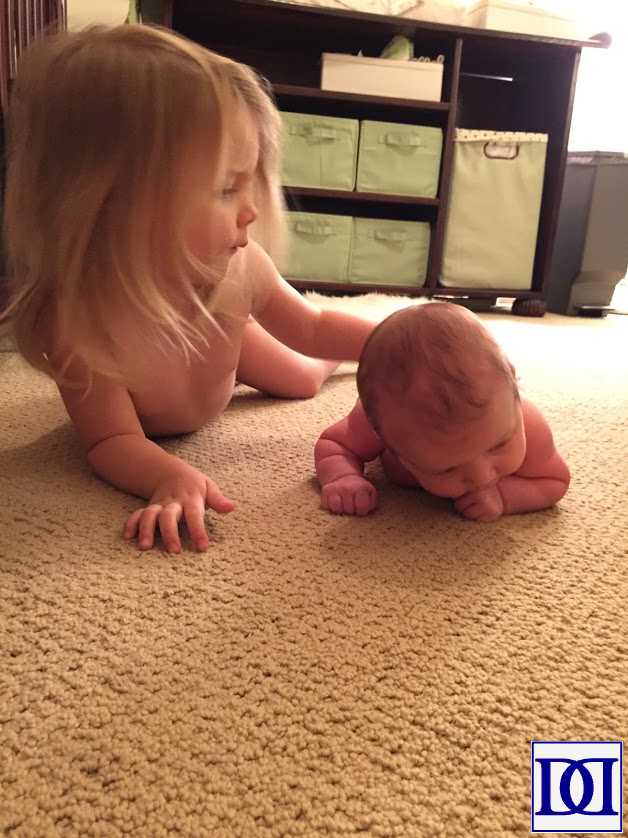
While I have absolutely zero training as a psychologist, I believe that older siblings’ desires to regress to babyhood reflect a certain fear. In my opinion, the core fear isn’t that they, themselves, are no longer a baby but that they are no longer “mommy’s (or daddy’s) baby.” In other words, that their position as “baby” has been taken, and they are seeking to re-assert their role. By helping the older sibling(s) in our family establish and feel pride in their new role, we found the behavior was no longer an attention-grabber.
We also had several conversations about the fact that, while she was a big girl, and being a big girl is AWESOME, she will never stop being one of Mom and Dad’s children/babies. This point got driven home when my parents came to stay with us, and my mom called me “her baby.” It was a beautiful, cross-generational moment when I had the privilege of showing my daughter that vulnerability, affection, and unconditional love are the benefits of all mother-child relationships regardless of age or maturity. Basically, you don’t have to act like a baby to be mommy’s baby.
Whether you choose to “evade” regression or embrace it as stage that will pass, I wish you the best of luck with encouraging your burgeoning big sibling to embrace their newfound role while still (and always) loving them as your baby. After all, they will now and always be both “big sibling” and “your baby.”
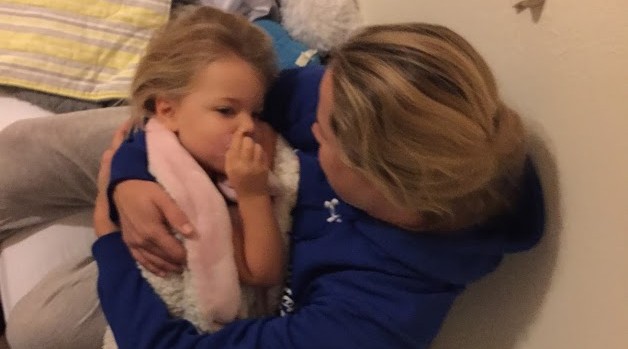
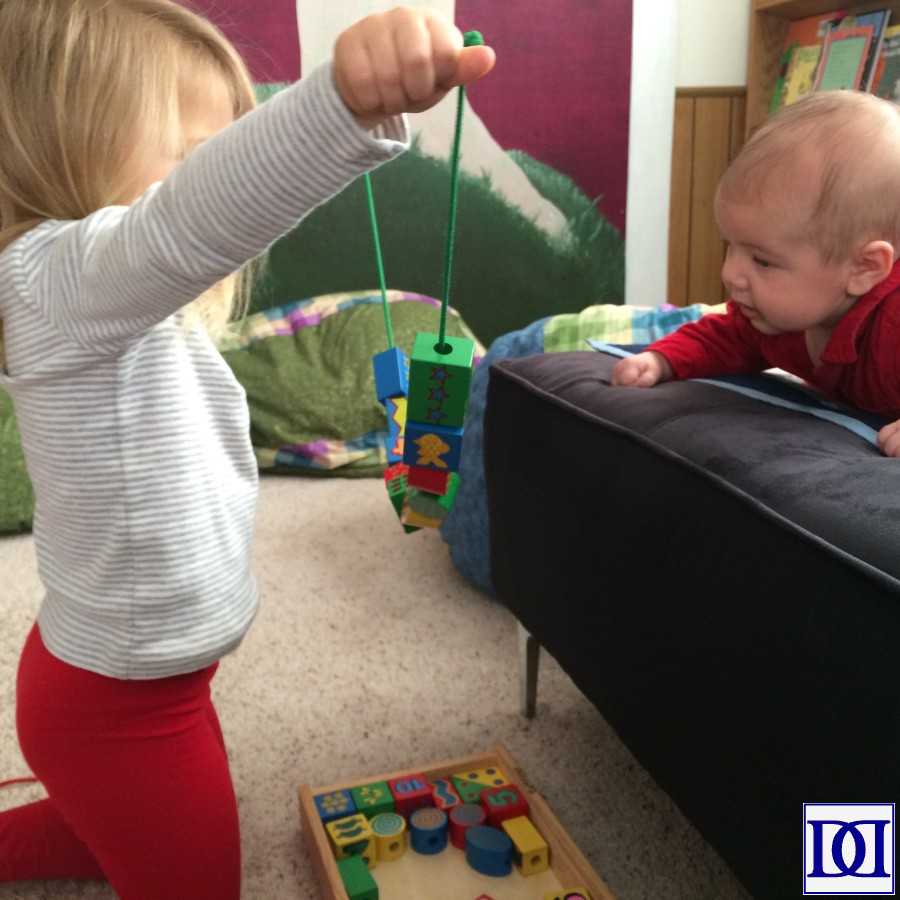
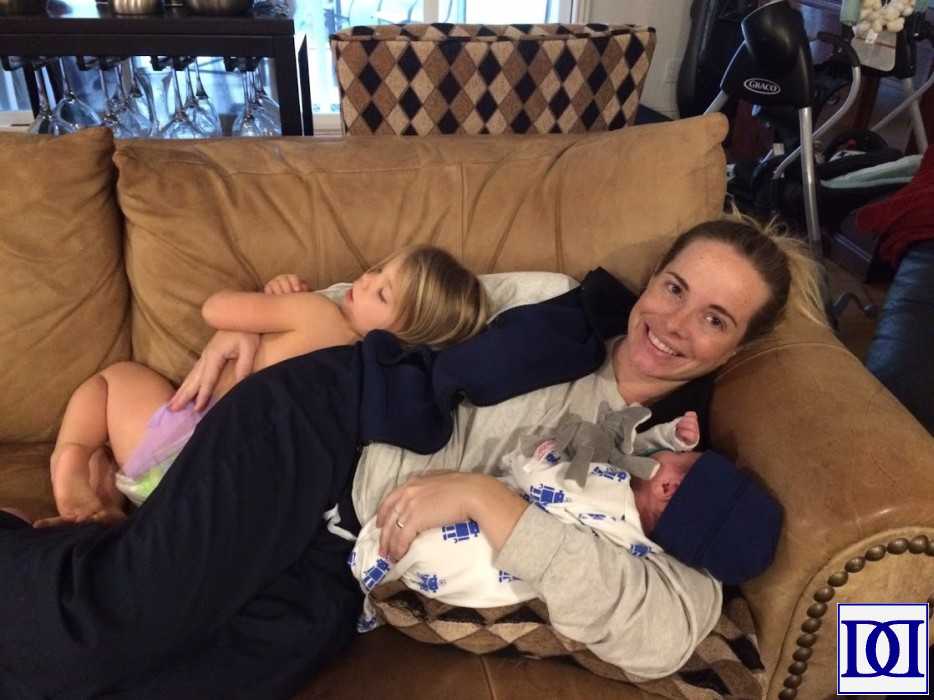
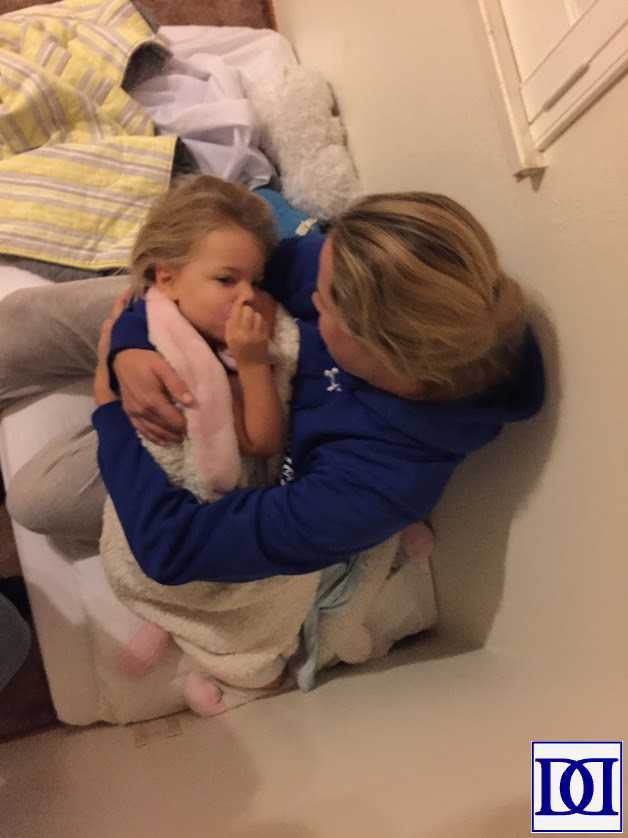
Leave a Reply